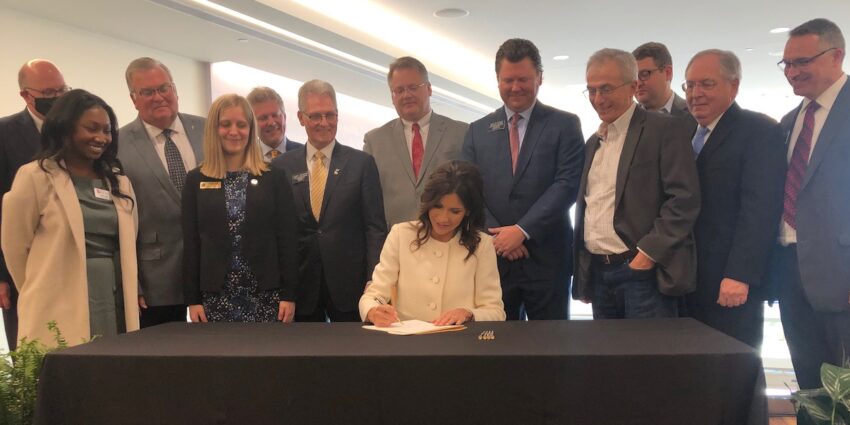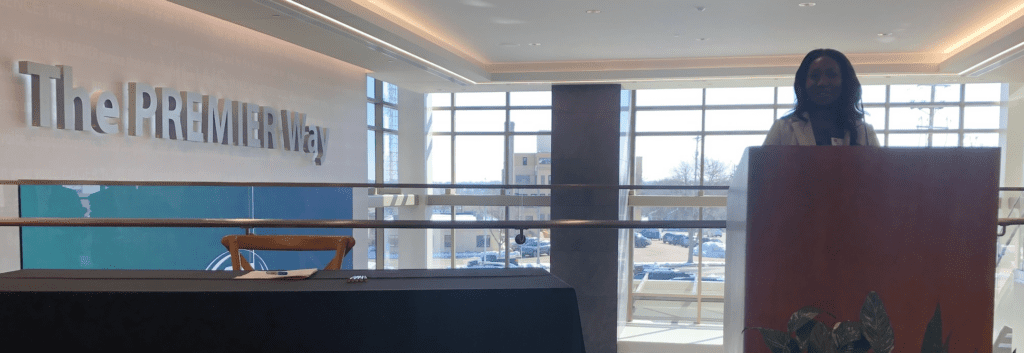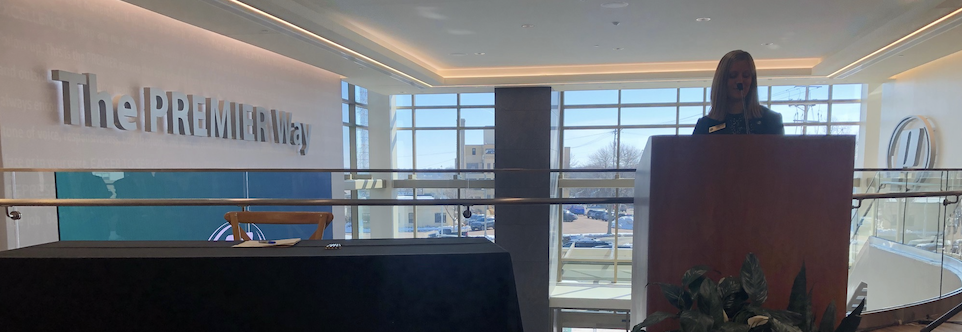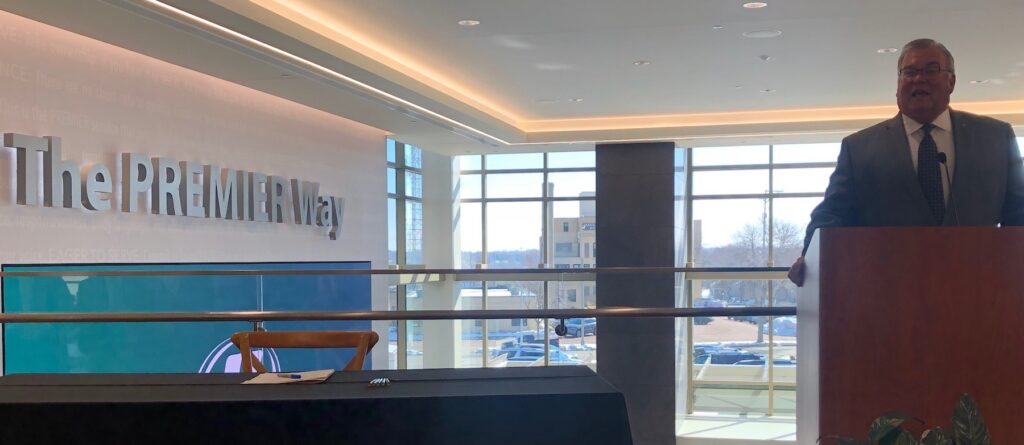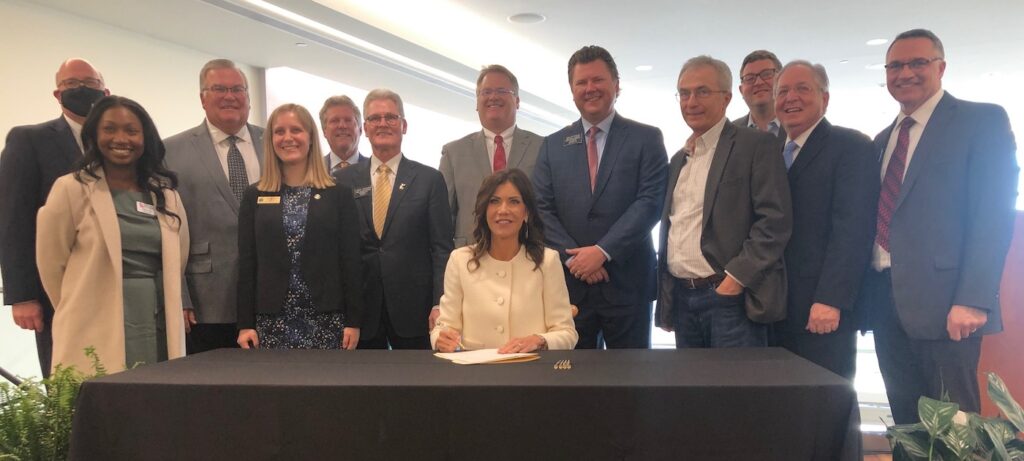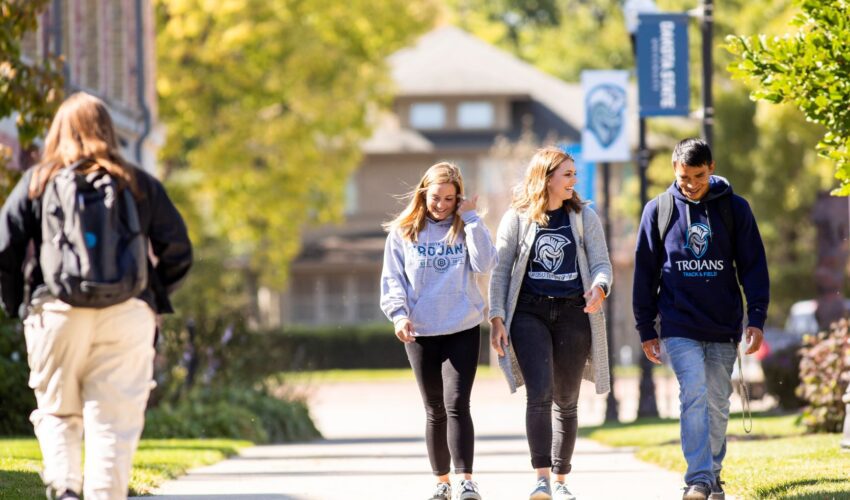Avera, Sanford add $25M to need-based scholarship fund as governor signs state’s share
March 18, 2021
The scholarship fund established by First Premier Bank and Denny Sanford has grown to a projected $175 million thanks to a new contribution from Sioux Falls’ health systems and the state officially approving its share.
Avera Health and Sanford Health each are contributing $12.5 million to the fund, which is meant to fill the gap in financial assistance that keeps many students from going to college.
Gov. Kristi Noem signed off today on a $50 million contribution to the fund, which received strong support in the state Legislature.
“With this historic scholarship there will be thousands of students to benefit for years to come,” Noem said.
“For them it’s monumental in what it can do for them, not just in helping them fund their education, but what it can mean for them mentally in a supportive way … to let them know they’re not in this alone.”
Premier and Denny Sanford announced their $50 million contribution late last year along with an intent to double it.
But to get a true feel for the impact, it helps to hear from students.
Two student leaders with powerful personal stories were among those who testified while the Legislature considered the appropriation.
“This need-based scholarship will change the lives of so many students,” said Abuk Jiel, a senior and the student body president at USD.
Jiel easily could have been among them. She was raised by her mother, an immigrant from South Sudan who was a teacher in her home country.
“It was a big goal for her to make sure we went to college and were successful after,” she said.
She received a merit-based scholarship to USD but knows many students who couldn’t make it work financially.
A friend her freshman year left school “because he couldn’t afford to pay for schooling on his own, and his family couldn’t as well,” she said. “I’m thinking of so many other people who had to leave mainly due to money, and they were great students, great people and so smart. It was just that little percentage of money they did not have to continue their education.”
Hattie Seten also can relate. The SDSU senior and Students’ Association president chose her college because it offered to help pay for her education through merit scholarships.
“As a low-income student, I know it can be kind of daunting when you’re approaching higher education and your resources are limited,” she said. “It can be difficult to stay at a state institution in South Dakota when you have financial need.”
Both women said meeting financial need was a priority among their fellow students.
“Data shows when South Dakota students graduate from post-secondary institutions in South Dakota, about 71 percent remain in state, so a scholarship like this is a great opportunity,” Seten said. “We’re able to help students at risk and create a more knowledge-based economy where students have opportunities and resources to stay right here.”
Seeing the fund grow produced “a mixture of shock and happiness,” Jiel said. “I was very, very happy … and I think that goes to show how much South Dakota really cares about its people and the success of its students.”
South Dakota was the only state in the nation to not fund needs-based scholarships. That changes with the $50 million state appropriation, which can be used for scholarships at all public and private universities and colleges in the state.
“The reaction was very positive,” First Premier Bank CEO Dana Dkyhouse said. “It passed overwhelmingly in the Senate, in the House it passed with a supermajority that was needed, so I think that’s truly a win for South Dakota.”
Students who accept the scholarships must be eligible for federal Pell grants and will be required to work at least three years in South Dakota after graduation in any field.
The universities will determine which students qualify, and the scholarship fund can be used to fill a financial gap of any size. The amount of money available to each university will be prorated based on enrollment, with allocations ranging from $200,000 to $1.25 million per school annually.
Dykhouse estimates the infusion of funds will result in a 20 percent to 30 percent annual increase in available scholarships for each university, “which will have a significant impact on students and on our universities.”
For the health systems, participating in the fund was “the right thing to do,” Sanford Health CEO Bill Gassen said.
“It’s absolutely the right thing to do from a workforce development perspective. Especially in health care, people continue to be our absolute No. 1 asset, and we see this as investing in today and in tomorrow. We don’t want to lose the talent we have in this state.”
Avera “sees this as an investment in our future workforce,” CEO Bob Sutton agreed.
“With over 19,000 employees, we need talented people who want to stay right here in our great state. We are also excited these needs-based scholarships will benefit those who need it most. It is crucial to the future of health care to be able to recruit and retain a qualified workforce. That’s why we are proud to work together with the state to offer these scholarships.”
In July, the governor will appoint a five-member board to oversee the program, similar to the Build Dakota scholarship program for technical education. An executive director will be hired yet this year and some staff will be shared with Build Dakota and the South Dakota Community Foundation, Dkyhouse said.
“We wanted to make it simple,” he said. “We created this model six years ago with Build Dakota, so we have the administrative model in place, and we want to leverage that.”
The first scholarships will be awarded for the 2022-23 school year.
Dykhouse and Premier Bankcard CEO Miles Beacom plan to meet with other businesses interested in contributing. Build Dakota has grown to 250 business partners of all sizes, “and we think this has that potential and more,” Dykhouse said.
The endowment created by Premier will fund operational costs, so all other contributions will go fully into scholarships, he added.
“Denny Sanford last December already contributed his $50 million, the state will contribute, so we’ll have significant earnings before we get this started. We’ll be in good shape.”
Premier, Denny Sanford kick off $200M fund for need-based scholarships

